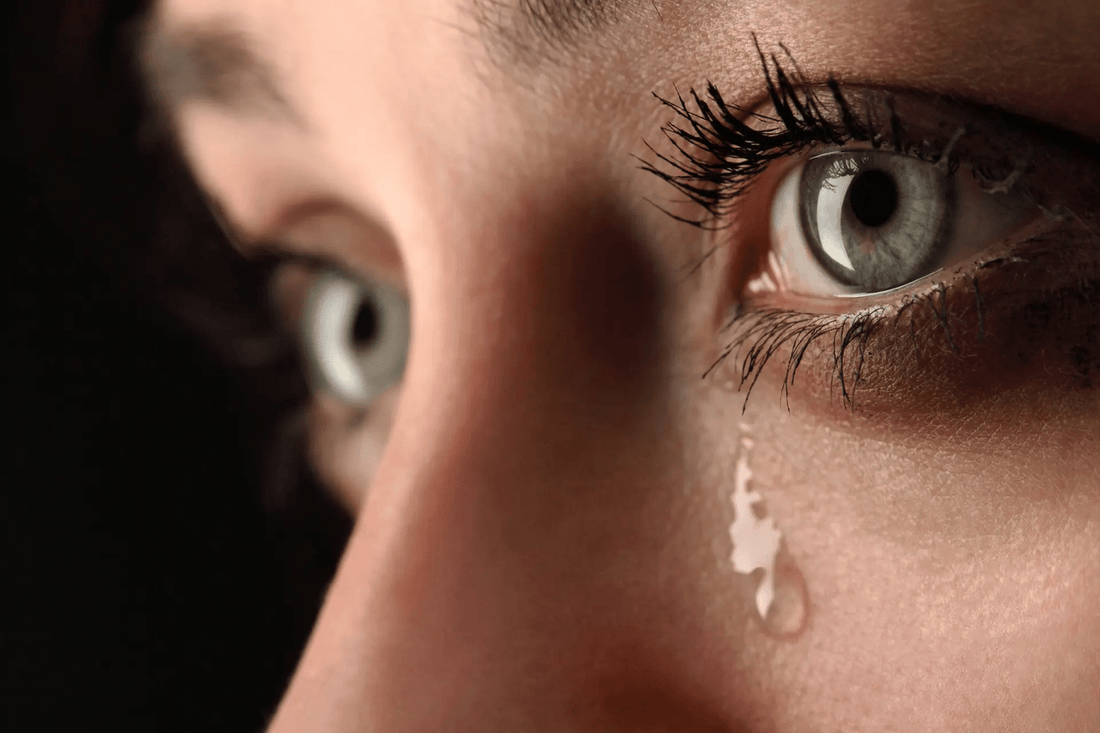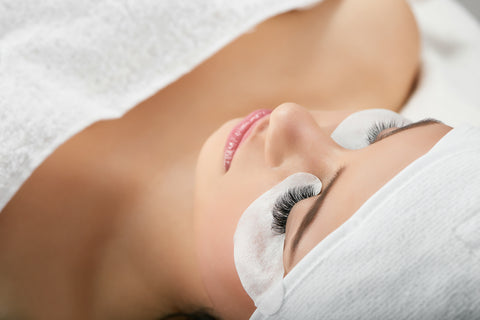Have you ever stumbled upon the intriguing idea that crying might be more than just an emotional release - that it could actually enhance your beauty by making your eyelashes longer? This notion, as intriguing as it sounds, raises several questions and piques the curiosity of many. But is there any scientific truth behind it, or is it merely a part of beauty folklore?
In this insightful exploration, we delve into the heart of this question: Does crying make your eyelashes longer? We’ll unpack the mysteries surrounding the growth and health of eyelashes, the emotional and physiological impacts of crying, and the intertwining of beauty myths with scientific facts. Understanding the natural growth cycle of eyelashes, the composition and role of tears, and the overall influence of emotional health on physical appearance, this post aims to shed light on this fascinating topic.
We also recognize that alongside the curiosity about the effects of crying on eyelash length, there's a broader interest in eyelash care and growth strategies. Therefore, as we navigate through this myth-busting journey, we'll also offer valuable insights and tips on promoting eyelash health, debunking common misconceptions, and suggesting practical, science-backed approaches to achieving beautiful, healthy eyelashes.
So, whether you're a beauty enthusiast, a science buff, or simply someone intrigued by this unique query, join us as we explore the intriguing connection between tears and eyelashes, separating fact from fiction and guiding you towards the best practices for eyelash care.
Inside this Article:
- Exploring the Myths and Realities of Eyelash Growth
- Understanding Eyelash Growth
- The Science Behind Tears
- Emotional Crying and Stress Hormones
- Myths vs. Facts
- Tips for Healthy Eyelashes
- Wrapping Up: The Truth Behind Tears and Eyelash Growth
- FAQ Section: Frequently Asked Questions About Eyelashes and Crying
Exploring the Myths and Realities of Eyelash Growth

Understanding Eyelash Growth
The journey to longer eyelashes begins with understanding their natural growth cycle. Eyelashes grow, rest, and eventually shed in a cycle that typically spans several months. This cycle is influenced by factors like genetics, age, and hormonal changes. Unlike popular belief, external factors such as crying have not been scientifically proven to alter this cycle significantly. However, maintaining overall health, including proper nutrition and hormonal balance, can support the natural growth process of eyelashes.
The Science Behind Tears
Tears, produced by the lacrimal glands, are essential for maintaining eye health. They lubricate the eye, provide nutrients, and help remove foreign particles. The composition of tears includes water, electrolytes, proteins, and lipids, but notably lacks components known to stimulate hair growth. Therefore, while tears are crucial for eye health, their role in promoting eyelash growth is not supported by scientific evidence.
Emotional Crying and Stress Hormones
Emotional crying is often linked to the release of stress hormones like cortisol. While the act of crying can have a cathartic effect, helping in reducing stress levels, there's no direct correlation between crying and enhanced eyelash growth. Prolonged stress, on the other hand, can negatively impact overall health, including hair health. Thus, managing stress is more beneficial for maintaining healthy hair growth, including that of eyelashes.
Myths vs. Facts
The belief that crying can make eyelashes longer is more folklore than fact. It's crucial to differentiate between anecdotal beauty tips and scientifically backed information. Proper eyelash care, rather than the act of crying, is key to achieving longer, healthier eyelashes.
Tips for Healthy Eyelashes
To promote eyelash health, consider the following tips:
- Gentle Cleaning: Regular and gentle cleaning of the eyelashes can prevent buildup and support healthy growth.
- Balanced Diet: A diet rich in proteins and vitamins, particularly biotin, vitamin E, and omega-3 fatty acids, is known to support hair health.
- Avoid Harsh Treatments: Minimize the use of harsh makeup or eyelash treatments that can cause breakage or loss of eyelashes.
- Use of Eyelash Serums: Certain over-the-counter eyelash serums may help in strengthening and lengthening eyelashes. Look for products with proven ingredients like peptides and natural oils.
While the romantic notion of tears making eyelashes grow longer makes for an intriguing tale, it lacks scientific backing. Focusing on overall health, proper eyelash care, and stress management is a more effective approach to achieving and maintaining beautiful, healthy eyelashes.
Wrapping Up: The Truth Behind Tears and Eyelash Growth

As we reach the end of our exploration into the fascinating world of eyelashes and tears, it’s clear that the notion of crying leading to longer eyelashes is more rooted in myth than scientific reality. The journey through the intricacies of eyelash growth, the nature of tears, and the impact of emotional crying has brought us to a definitive conclusion: crying does not directly contribute to eyelash length or health.
The growth and health of eyelashes are primarily governed by genetics, nutritional factors, and the natural growth cycle of the hair follicle. While tears play a crucial role in maintaining eye health and emotional well-being, they lack the properties necessary to stimulate eyelash growth. Instead, focusing on proven strategies for eyelash care – such as gentle cleaning, a nutritious diet, and the judicious use of eyelash-enhancing products – is the key to achieving longer, healthier eyelashes.
Moreover, understanding the difference between beauty myths and scientifically-backed facts is crucial in the pursuit of beauty and wellness. It empowers us to make informed decisions and adopt practices that are truly beneficial.
In closing, while the allure of simple solutions like crying for longer lashes is tempting, it's essential to turn to reliable, science-based methods for eyelash care and enhancement. By doing so, we not only nurture our natural beauty but also embrace the truth behind what really works.
Remember, the true beauty of eyelashes lies not in their length alone but in their health and the way they frame our eyes – the windows to our soul.
FAQ Section: Frequently Asked Questions About Eyelashes and Crying
Q: Can diet affect eyelash growth? A: Yes, diet plays a significant role in hair and eyelash health. Consuming a balanced diet rich in vitamins (like biotin, vitamin E) and proteins can support the growth and strength of your eyelashes.
Q: Are there any natural remedies to enhance eyelash health? A: Natural oils such as castor oil and vitamin E oil are popular for eyelash care. They are known for their properties that can potentially strengthen and moisturize eyelashes. However, it's important to use them cautiously to avoid eye irritation.
Q: How can I safely clean my eyelashes to promote health and growth? A: Gentle cleaning is key. Use a mild, non-irritating cleanser and softly brush your eyelashes with a clean mascara wand or a cotton swab. Avoid harsh rubbing or pulling, which can lead to eyelash loss.
Q: Does the length of time spent crying impact eyelash health? A: There is no scientific evidence to suggest that the duration of crying has any impact on eyelash health. Crying's primary function is emotional release and eye lubrication, not affecting hair growth.
Q: Are there any specific vitamins or supplements known to improve eyelash growth? A: Supplements containing biotin, vitamins B, D, and E, and omega-3 fatty acids are often recommended for overall hair health, which can include eyelashes. However, it's always best to consult with a healthcare provider before starting any new supplement regimen.
Q: Can stress or emotional well-being affect eyelash health? A: While direct effects on eyelash growth are not scientifically proven, prolonged stress can affect overall health, including hair health. Managing stress through healthy lifestyle choices can indirectly benefit the condition and health of your eyelashes.
Q: Is it true that certain eye makeup products can harm eyelash health? A: Some makeup products, especially waterproof mascaras or those that require harsh removers, can be tough on eyelashes. Opting for gentle, hypoallergenic products and thoroughly removing makeup at the end of the day can help maintain eyelash health.
Sources
Human eyelash characterization - PubMed










